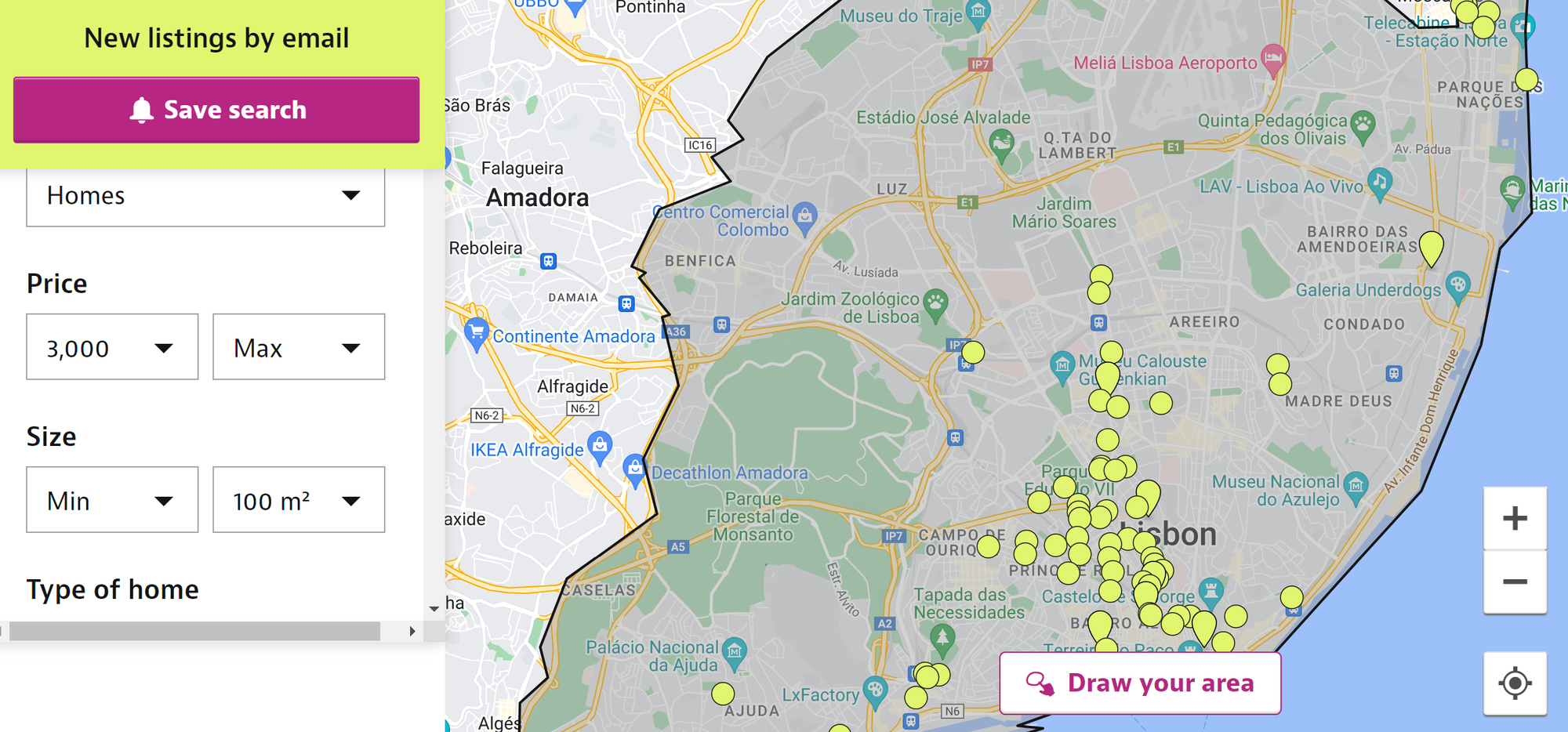Lisbon, the capital city of Portugal, is a beautiful and vibrant location that has attracted expatriates from all over the world. The city offers a sunny climate, high quality of life, and attractive tax incentives, making it an ideal destination for those looking to relocate. However, this influx of foreign residents has created a complex issue in the city's housing market, leading to soaring rental prices and a housing crunch that is pricing out locals.

- 🏠💰 The demand for housing in Lisbon is driven by a combination of factors, including the "Golden Visa" program and the Non-Habitual Resident (NHR) tax scheme.
- 💸 These incentives have given expats greater purchasing power, driving up rental prices.
- 🏩🛌 The thriving tourist industry in Lisbon has also contributed to the housing crunch.
- 🏨👥 Platforms like Airbnb have led to thousands of units being taken out of the long-term rental market for short-term vacation rentals, further reducing available housing options for locals.
- 🏡👥👥 Young Portuguese adults are finding it increasingly challenging to find affordable housing, often forced to live with their parents well into their 30s.
- 👨🏫👩⚕️👨🚒 Essential workers like teachers, nurses, and firefighters face punishing commutes from distant suburbs due to unaffordable rents in the city center.
- 🏢🏬 Gentrification has transformed historic neighborhoods as local shops and restaurants catering to foreign tastes replace traditional businesses.
- 📜 The government has taken steps to cool rental demand by phasing out the "Golden Visa" program and freezing short-term rental licensing.
- 🏘️ To address the issue of affordable housing, the government is exploring options such as subsidized social housing, rent controls, and taxes on vacant units.

🏢💸 Skyrocketing Rents and the Expat Factor
A combination of factors has contributed to the surge in rental prices in Lisbon. The 'Golden Visa' program, offering residency to property investors over 500,000 euros, led to a surge of foreign buyers. As a result, bidding wars and staggering rent increases of over 50% annually have become the norm. For example, a 120 square meter, 2-bedroom apartment in the prime Campo de Ourique neighborhood now costs around 2,800 euros per month.
Cost | Example |
2-bedroom apartment in Campo de Ourique | 2,800 euros per month |
1-bedroom apartment in Alfama | 2,500 euros per month |
T1 28 m² apartment in São Vicente de Fora, São Vicente | 800 euros per month |
T5 300 m² luxury apartment in Santa Catarina, Misericórdia | 10,000 euros per month |
🏨🛌 Impact of Lisbon's Tourist Boom
Lisbon's thriving tourist industry has also contributed to the housing crunch. The popularity of platforms like Airbnb has led to thousands of units being taken out of the long-term rental market for short-term vacation rentals, further reducing available housing options for locals. It's estimated that there are now 200 tourist lodgings for every 100 residents in the city center.
💼💼 Expat Tax Incentives and Purchasing Power
The 'Non-Habitual Resident' (NHR) tax scheme, designed to attract foreign pensioners and remote workers, offers foreign residents a flat rate of 20% income tax for 10 years, compared to the top rate of 48% for Portuguese citizens. This significant tax discount has given expats greater purchasing power, driving up rental prices. For instance, a 1-bedroom apartment in the historic Alfama district now rents for 2,500 euros per month.

🏙️🏢 City Transformation and Social Impact
The impacts of the housing crunch are reverberating across Lisbon society. Young Portuguese adults are finding it increasingly challenging to find affordable housing, often forced to live with their parents well into their 30s. Essential workers like teachers, nurses, and firefighters face punishing commutes from distant suburbs due to unaffordable rents in the city center. Moreover, gentrification has transformed historic neighborhoods as local shops and restaurants catering to foreign tastes replace traditional businesses.
🏢🏘️ Strategies for Relief
As Portugal grapples with the housing crisis, the government has taken steps to cool rental demand. The 'Golden Visa' program is being phased out, aiming to reduce the influx of foreign buyers. Additionally, short-term rental licensing has been frozen to increase long-term housing availability. To address the issue of affordable housing, the government is exploring options such as subsidized social housing, rent controls, and taxes on vacant units.
🌟🔒 Expat Attraction Continues
While these measures aim to cool off the rental market, the 'Gringo Tax' is still in effect. The popularity of Lisbon amongst well-heeled expats continues to fuel a rental market that's a pricey playing field. Real estate listings show a gamut of apartments available for rent in various nooks of the city. Prices swing from 800€/month for a T1 28 m² apartment in São Vicente de Fora, São Vicente, all the way up to a staggering 10,000€/month for a T5 300 m² luxury pad in Santa Catarina, Misericórdia. These often come with perks like lift access and parking, and are fully furnished and equipped, adding to the city's allure for foreign residents. The 'Gringo Tax' - the phenomenon where expats tend to pay a premium, in this case, about 35% more for similar apartments - is a factor that continues to skew the market.
Cost | Type | Location | Size |
800€/month | T1 apartment | São Vicente de Fora, São Vicente | 28 m² |
2,500€/month | 1-bedroom apartment | Alfama | 60 m² |
10,000€/month | T5 luxury apartment | Santa Catarina, Misericórdia | 300 m² |
What this means for Lisbon 🏙️
Lisbon's housing crunch is a complex issue driven by a combination of factors, including the Golden Visa program, the tourist boom, and the Non-Habitual Resident tax scheme. While the city is taking steps to alleviate the problem, the demand from affluent expats is expected to continue driving rental prices higher, making it increasingly challenging for locals to find affordable housing. The government's efforts to create more affordable housing options and control rental prices will be crucial in ensuring a balanced and sustainable housing market for all residents of Lisbon. 🔒

